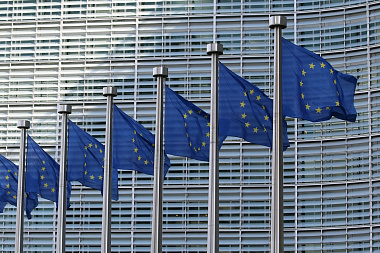The main purpose of the Law is to streamline the relationship between telecom operators and subscribers, including foreign citizens.
Most of the amendments will enter into force on 1 January 2025, with some requirements later.
Main amendments
Who will be affected by the LawTelecom operators and the majority of subscribers, including corporate subscribers will be affected by the Law.
Telecom operators
The requirements for subscriber identification are tightened (including additional biometric procedures for foreigners and stateless persons); the number of sim cards to be issued is limited (no more than 20 for Russian citizens, and no more than 10 for foreigners and stateless persons).
Corporate sim cards
Now they can only be issued to persons working under an employment agreement or a paid civil law contract.
Foreign mobile subscribers
In order to conclude a communication services agreement, they will have to submit biometrics and, most likely, provide the IMEI of the mobile devices used.
New requirements
The Law plans to streamline the relationship between telecom operators and subscribers in order to prevent unlawful actions on the part of subscribers when receiving telecom services.The key amendments can be briefly summarised as follows:
- the conclusion of communication services agreements is now possible using the Unified Biometric System (through authentication based on biometric personal data of individuals);
- legal entities and individual entrepreneurs will now only be able to provide the opportunity to use corporate sim cards to individuals working under employment agreements or paid civil law contracts, provided that information on such individuals is entered into the Unified Identification and Authentication System (UIAS); and for foreign citizens and stateless persons — biometric data is entered into the Unified Biometric System;
- in case of the liquidation of a legal entity or the termination of an individual entrepreneur, all corporate sim cards may be reissued to individuals;
- information on the subscriber must now be entered by the operator into the mobile communication services agreement within two days (previously the operator had 10 days);
- subscriber information must now be verified by the operator prior to the start of the provision of mobile services — if the information is inaccurate, mobile services cannot be provided;
- subscriber information will be verified on the basis of identity documents or through the use of the Unified Identification and Authentication System (UIAS) or the Unified Biometric System;
- restrictions on the number of sim cards are introduced — no more than 20 sim cards for citizens of the Russian Federation and no more than 10 for foreigners and stateless persons are allowed. Operators will track the number of sim cards issued;
- in order to conclude an agreement with foreign citizens and stateless persons, operators will be obliged to confirm the accuracy of (i) information on the subscriber through the use of the UIAS and the Unified Biometric System, as well as (ii) identification modules of mobile devices (it is not explicitly stated in the Law, but it may refer to the IMEI (International Mobile Equipment Identity) number);
- telecom operators will have to inform subscribers of new sim cards for all the numbers previously held by the subscriber with that operator;
- Roskomnadzor is creating a “state information system for monitoring the fulfilment by telecom operators of their obligations in the provision of telecom services” for the purpose of verifying information on subscribers, the number of sim cards issued and the identification modules (IMEI) of mobile devices of foreign citizens and stateless persons. The operator of the abovementioned system will be the Radio Frequency Service, and the rules for its operation will be established by the Government of the Russian Federation;
- the obligation for mobile operators is established to transmit data on the identification modules (IMEI) of mobile devices of foreign citizens and stateless persons to a “state information system for monitoring the fulfilment by telecom operators of their obligations in the provision of telecom services”;
- individuals will be able to familiarise themselves with the data of the “state information system for monitoring” and, in case of disagreement with the fact of an agreement’s conclusion, to immediately suspend the provision of communication services (an application can be submitted, among other things, via the “Gosuslugi” portal);
- as a rule, cash payments for mobile communication services are only allowed at banks and upon presentation of an identity document (cash payments through payment terminals are prohibited).
Liability for non-compliance with the Law
The Law does not introduce any new types of liability, but expands the scope of application of already existing types of administrative liability.Mobile operators may be held liable for failing to comply with the requirements of the Law in accordance with the provisions of article 13.29 of the Code of Administrative Offences (“Non-compliance with the requirements established by the legislation of the Russian Federation in the field of telecommunications for the conclusion of telecommunications services agreements, non-compliance with the procedure for verifying the accuracy of information on the subscriber”, the maximum amount of liability under the article is up to RUB2 million).





